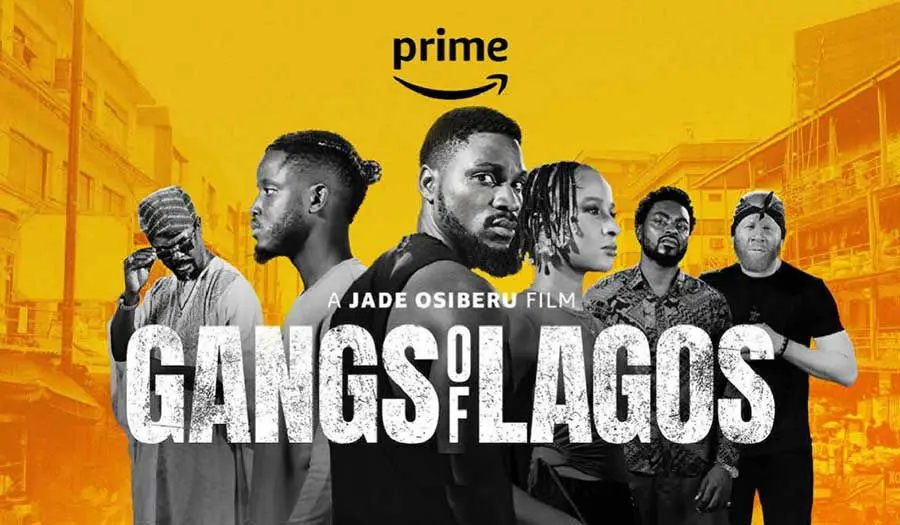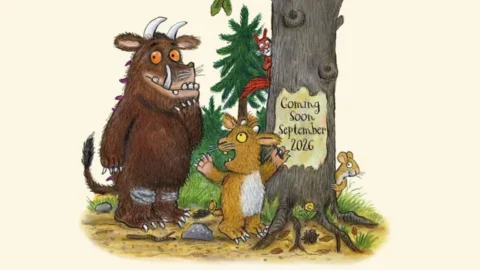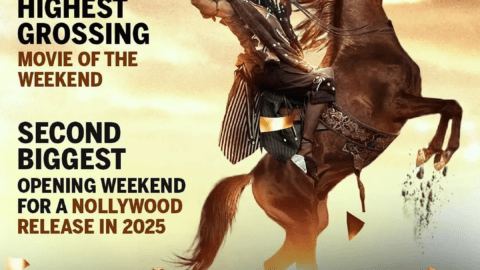A Lagos State High Court has ruled in favor of the Isale-Eko Descendants Union (IEDU) in its lawsuit against Amazon Web Services Nigeria and the producers of Gangs of Lagos.
The court has mandated that they issue a public apology for misrepresenting the revered Eyo Festival and the Isale-Eko community. The verdict is seen as a major victory for cultural preservation and responsible storytelling in Nigerian cinema, reinforcing the need for filmmakers to depict indigenous traditions with accuracy and respect.
The case, filed under Suit No: LD/6903GCM/2023, was initiated by members of the Isale-Eko community, who expressed their grievances over how the film, released on Amazon Prime Video, distorted their cultural heritage.
The plaintiffs argued that Gangs of Lagos painted an offensive and misleading picture of their traditions, particularly the Eyo Masquerade, which holds deep historical and spiritual significance in Lagos. They contended that such a depiction tarnished the festival’s true essence, influencing how local and international audiences perceive their community.
At the heart of the controversy was the portrayal of the Eyo Masquerade, a symbol of peace and tradition, which the film allegedly linked to gang violence and criminal activities. The Isale-Eko Descendants Union insisted that this representation was a gross misinterpretation that disrespected the cultural and historical significance of the festival.
They emphasized that the Eyo Festival is a sacred tradition meant to honor ancestors and celebrate Lagosian heritage, not an instrument of violence or street warfare as depicted in the movie.
After extensive legal deliberations, Justice Idowu Alakija approved the Terms of Settlement agreed upon by both parties, bringing the case to a conclusion. As part of the settlement, the producers of Gangs of Lagos (Respondents 3-11) are required to publicly acknowledge their misrepresentation of the Eyo Festival and extend an official apology to the people of Isale-Eko.
This public acknowledgment aims to rectify the damage done and reinforce the importance of ethical cultural representation in media.
Furthermore, Amazon Web Services Nigeria Limited (Respondent 12), which played a pivotal role in distributing the film on its global streaming platform, is also obligated to issue an apology on its official letterhead.
This move signals the responsibility that streaming platforms bear in ensuring that the content they host does not misrepresent or offend local cultures. By holding Amazon accountable alongside the filmmakers, the ruling underscores the need for greater diligence in content distribution.
Reacting to the court’s decision, the Chairman of the Isale-Eko Descendants Union, Senior Advocate of Nigeria (SAN) Adeniji Kazeem, hailed the ruling as a landmark victory for Nigeria’s cultural heritage.
According to Kazeem, the verdict establishes a critical precedent for safeguarding indigenous traditions from harmful misrepresentation in entertainment.
He stressed that filmmakers must exercise greater responsibility in their portrayal of real communities, particularly in an era where digital content reaches global audiences instantly.
Kazeem further called on regulatory bodies at both the national and state levels to introduce stricter content guidelines for films, particularly those released on international streaming services.
He argued that inaccurate portrayals of cultural symbols do more than mislead audiences—they erode the integrity of Nigeria’s rich heritage. By pushing for stronger oversight, he hopes to ensure that future productions handle cultural narratives with the sensitivity they deserve.
The controversy surrounding Gangs of Lagos ignited heated debates upon its release, with Nigerians divided over whether the film’s depiction was a legitimate exercise of creative freedom or a case of cultural insensitivity.
While some defended the movie as a work of fiction, others maintained that Nollywood, as a powerful storytelling industry, has an obligation to portray real communities with accuracy and respect. The lawsuit underscored the growing concern about cultural appropriation and misrepresentation in Nigerian cinema.
Now that the court has ruled in favor of the Isale-Eko Descendants Union, attention has shifted to the filmmakers and Amazon Web Services, with many eager to see how they will respond to the mandated apology.
Will they issue a sincere and public acknowledgment, or will they attempt to downplay the ruling? The way they handle this situation could have lasting implications for Nollywood and its approach to cultural narratives in future productions.
Beyond this specific case, the ruling raises broader questions about the balance between artistic license and cultural responsibility. As Nigerian cinema continues to expand its global footprint, the industry must navigate how to tell compelling stories without distorting the identities of real communities.
The Gangs of Lagos controversy has set the stage for a larger conversation about how filmmakers can create authentic narratives while honoring the traditions and heritage that define the nation’s cultural landscape.









